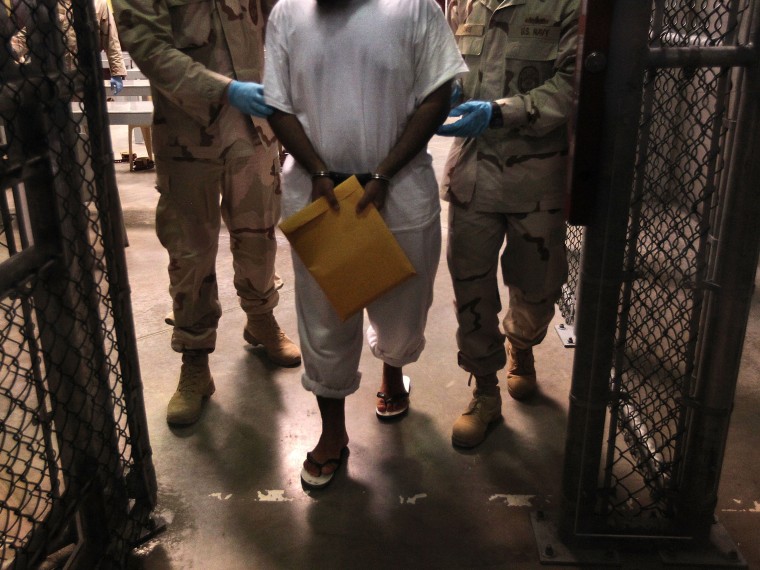More than four years after President Barack Obama signed an executive order to close the Guantanamo Bay Detention Facility, little has changed. In spite of the administration's hand wringing over what to do with the facilities' 166 prisoners--transferring them to the U.S., returning them to their host nation, or sending them to a third party country--there is something very simple that can be done to meet some of the hunger strikers' demands.
"It would still probably be a very, very positive move for the administration to say they're not going to search Qurans," said attorney David Remes, who represents 17 of the 166 prisoners in Guantanamo Bay, Cuba. "That was the original demand."
A declaration filed in federal court by Obaidullah, a detainee participating in the hunger strike, cites soldiers' treatment of detainees' Qurans as the "most disturbing" aspect of the February 6 search. Obaidullah filed the declaration on March 27, but it was not declassified until early May:
"I have not taken any food from the guards since February 6 in protest to events of that week, and what has happened at the camp since then. That week, camp authorities asked all of the detainees in our block in Camp 6 to step outside of the cells while a 'shake-down' of the entire block was conducted by U.S. soldiers. While we were all outside of the cell blocks, soldiers went into our cells, and searched what little personal belongings we have. This kind of very intrusive search had not been conducted for at least 4 or 5 years, since the early years at Guantanamo under President Bush. The searches were unexpected, sudden, and disrespectful. To my knowledge there was no incident which provoked the searches...Most disturbing, was the way in which the soldiers disrespected our Qur'ans [sic]. While the soldiers conducted their searches, I and other detainees saw U.S. soldiers rifling through the pages of many Qur'ans [sic] and handling them roughly. This constitutes desecration."
Obaidullah continues to state, "Our Quran is not a security issue and the soldiers have never found any things in Qurans from the begininning of GTMO [sic]. The guards then also started being very disrespectful during our prayer time by knocking on our doors while we prayed, laughing or talking loudly, and opening and closing doors. We had not had a problem with having our prayer time disrespected or interrupted in many years and it has become a problem after our hunger strike."
Obaidullah concludes by stating that he and fellow hunger strikers will remain on strike until several conditions are met. Included is the demand that "our prayer and religion is respected, and our Qurans are handled with the care and sanctity required."
Remes, who does not represent Obaidullah but counts among his clients 14 of those participating in the hunger strike, said, "I do think that promising to stop searching the Quran would have a very positive effect on the detainees, but ultimately the underlying problem remains and they're just gonna go back to life as normal."
